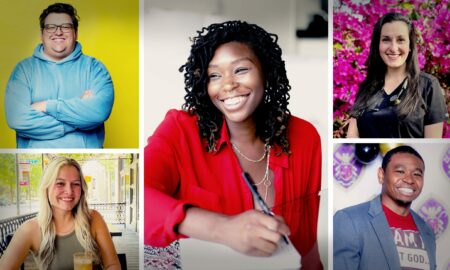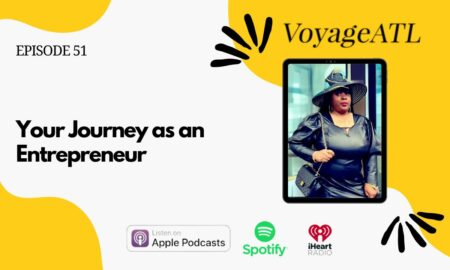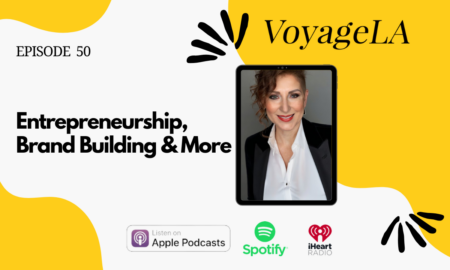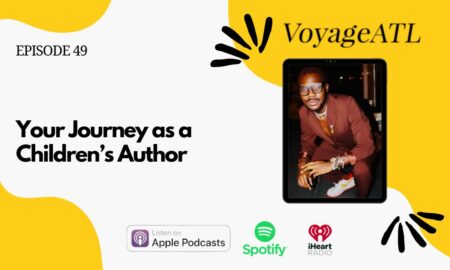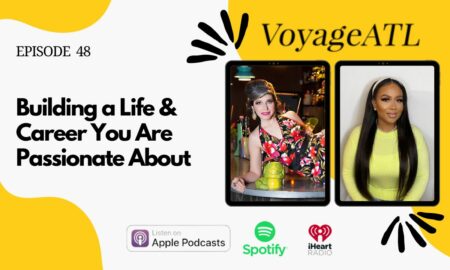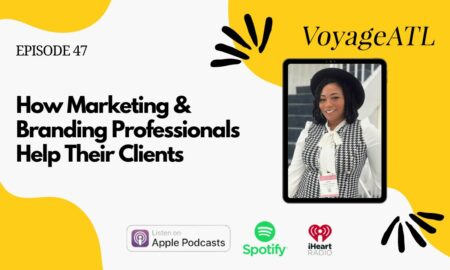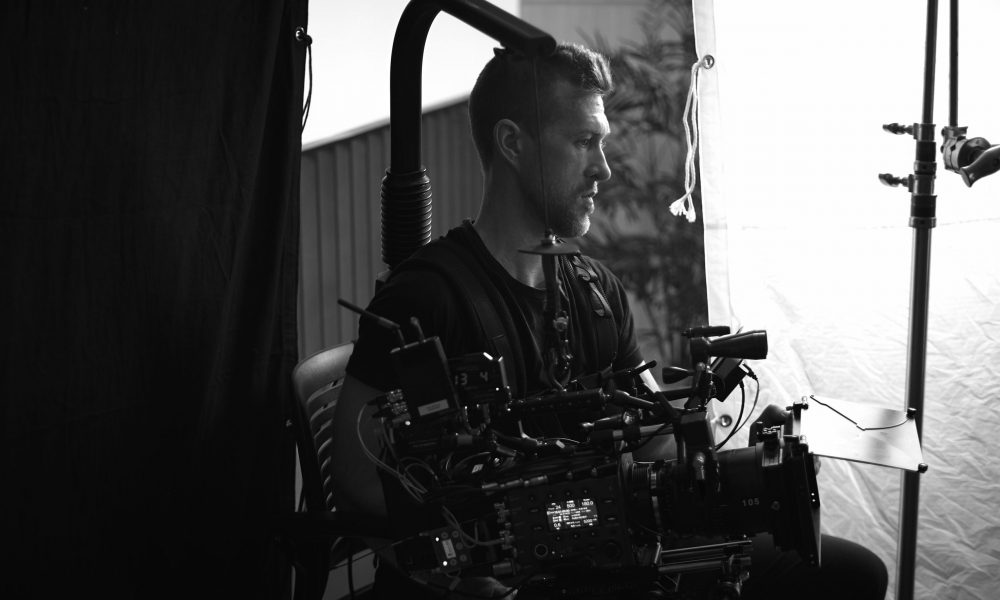

Today we’d like to introduce you to Tom Pritchard.
Tom, let’s start with your story. We’d love to hear how you got started and how the journey has been so far.
When I was in grade school, I remember being very quiet and very creative. I grew up with a single mother who worked a lot, so I had loads of free time to make up stories in my head. I was always drawn to artistic things like writing and drawing. In middle school, I remember reading my stories in front of the class, and my classmates would literally stay in their seats when the bell rang if I wasn’t done yet with the story. Fast forward to High School, where I eventually abandoned drawing altogether, and writing was something I did only when a teacher required it. A part of me still knew though that one day I would make a living in the arts.
I went to the University of Georgia and majored in video production. Like many people that majored in film and video, I exited college with the confidence that companies would be lining up to hire me to direct their videos. Well, reality doesn’t quite work like that. Not knowing where to even start with finding work, I eventually applied at the local Atlanta lighting and camera rental house called PC&E. The manager at the time hired me to work in the warehouse despite laughing out loud because I described myself as a producer and a director on my resume. Needless to say, in his mind an established producer/director would not be applying for a job that mostly entails loading and unloading lighting gear to and from a truck. I can’t say I loved my job at PC&E, but I learned about lighting and camera gear, and I formed bonds with my coworkers who I am still in touch with today. You could say that I am still very loyal to PC&E, and I rent from them often.
Eventually, I left PC&E and set off to the world of freelance production work. From that moment on, my journey was pretty traditional. I started at the bottom as a production assistant on commercials. I would do tasks like take out the garbage, set up the lunch tent, drive a passenger van, and help the art department throw confetti in the air during a party scene… important stuff. No matter my task, I always tried to stay close to the camera. I was super intrigued by the person everyone called the Director of Photography or DP for short. We work within a visual medium, and the DP seemed to have an incredible amount of control over those visuals. I enjoyed memorizing where the lights were placed and how the camera moved, then watching the finished product on TV to see the effect of those decisions.
I eventually graduated from PA work and started working in the lighting department. Then three years after that, I was shooting full time. Like I said, all very traditional. I don’t have any stories about how I DPed a short film in my early 20s that got noticed by all the right people. It’s been a long and very slow process. To some extent, the lighting knowledge comes slowly. No amount of YouTube videos can prepare you to step on set and light a scene quickly and beautifully while being thrown curveballs the whole time in the form of weather, or a location suddenly falling through, or an opinionated client showing up late, then changing everything. I feel like I’ve seen most scenarios, and I can roll with the punches pretty well.
Fast Forward again to the pandemic. When shutdown started, I knew I had to shoot something. I have pretty extensive food and restaurant shooting experience, so I started visiting chefs and restaurant owners and documenting how they are persevering and pivoting through the pandemic. I’m a half year into this project now, and I think I’ve captured some compelling stuff. I have a small team that consists of my camera assistant Antonio, my producer Stacy, and my editor Andrew. The team is about to get bigger though because post-production is ramping up. And coincidentally, I am very much the ‘Director’ of this project. Everything happens for a reason I guess.
Has it been a smooth road?
I’ll be the first to admit that the biggest impediment to my career success is my own mind. Film/Video Production is a pretty competitive field and self-doubt can really get in the way of opportunity. Someone is always waiting in the wings to say ‘yes, I can’ to the thing that you are unsure if you can do or not. I haven’t had a ton of struggles during my career, but I have missed a lot of opportunities because I didn’t believe in myself.
When I was younger, I would do a lot of jobs for out of town production companies. They would come to town to capture content for VHI or TLC or something, and I would be hired to shoot for them. When the project was complete, I would just sit around for a couple weeks or months and just wait for a producer to call and tell me that all my footage was crap. That call never came, but the moral of the story is that I could have avoided a lot of that stress by just communicating. For instance, I should have just emailed the producer a week after the job ended, and asked if they were happy with everything. Instead, I would hand over the footage, then make myself invisible. Communicating with a producer is never a bad thing, and there are no dumb questions. Here is a phrase that a director or producer has never said: ‘Stop Updating me on what you’re doing in preparation for my gig.’
We’d love to hear more about your work.
I formed an LLC about a year and a half ago called TP the DP, LLC. I like the play on words for Tom Pritchard and Director of Photography. Since I am a freelance Director of Photography, I’m not necessarily known by my LLC. I’m just Tom to everyone. My Instagram though is @TPtheDP. I generally shoot commercials, branded content, and documentaries. I have a couple Southeast Emmys and Tellys for my documentary work. I also have a decent amount of food shootings experience. I’m happy to say that I was the main Director of Photography for the television show Atlanta Eats for six years. I was with them since their pilot episode.
A Director of Photography (DP) is the person that collaborates with the director and/or producer to come up with a visual style for the film/video project. The DP is in charge of deciding what kind of camera and lenses to use, as well as how to light the scenes. In my experience, the input of the Director and the DP can overlap in many places, especially in the framing and the camera movement. But its been my experience that the lighting is the DP’s baby. Other departments generally don’t tell the DP how to light.
I think what sets me apart from other DPs is my knack at documentary-style shooting. I’ve been told by multiple editors that a very small amount of my doc-style footage is ‘throw-away’ footage. I’m pretty much getting very usable content from the moment I push record, up until the moment I cut. I also really enjoy lighting. From early on in my career, lighting came very naturally. I like location scouting before a shoot for no other reason than I love thinking about where the lights will go. Lighting can get very messy very quickly. One piece of advice I’d like to give to someone starting out is keep it simple. If you’re setting up an interview for instance, maybe one light is all you need. And, try to keep track of what every light is doing.
I think I’m most proud of the documentary that I started producing during the pandemic. It’s called ‘Please Wait To Be Seated,’ and it documents how some Atlanta restaurant owners and chefs are pivoting and persevering during the pandemic. My documentary is Chef’s Table meets a pandemic. I’m basically the Producer, Director and DP of this project. It’s been a super rewarding challenge. I’m not exaggerating when I say that all the experience I’ve gathered during my career, and all the gear I’ve purchased along with way have been in service of producing this documentary.
How do you think the industry will change over the next decade?
Hopefully we keep seeing documentaries, and other story-driven projects. Traditional 30 second commercials will probably fade in popularity. Has a 30 second commercial really convinced anyone to buy something? For better or worse, social media videos will keep getting more popular. Honestly, I kind of like the challenge of doing video shoots where I have to frame for 9×16 or 4×5. Less people on set will be the trend for at least another year. DITs and VTR people will be called upon to broadcast a high quality video signal back to the agency or the client office.
DPs need to be versatile. If you’re asked to do a 9×16 video shoot, you should find a way to get excited about the possibilities of that kind of framing. I think a ‘cinematic look’ is pretty relative. I’ve visited some DP’s websites, and every single video on their site is in 2.4:1 widescreen. Through that aspect ratio, I think they are trying to convey that they shoot some cool cinematic stuff. But there are more and more movies coming out that utilize a 4×3 aspect ratio. As a DP, if you put definitive rules on what is cinematic, then it’ll be harder to pivot with the trends.
Contact Info:
- Website: tompritchardcamera.com
- Phone: 404-403-0423
- Email: tom@tompritchardcamera.com
- Instagram: @TPtheDP
- Other: https://www.tompritchardcamera.com/pwtbs




 Image Credit:
Image Credit:
Daniel Rainer
Suggest a story: VoyageATL is built on recommendations from the community; it’s how we uncover hidden gems, so if you or someone you know deserves recognition please let us know here.












